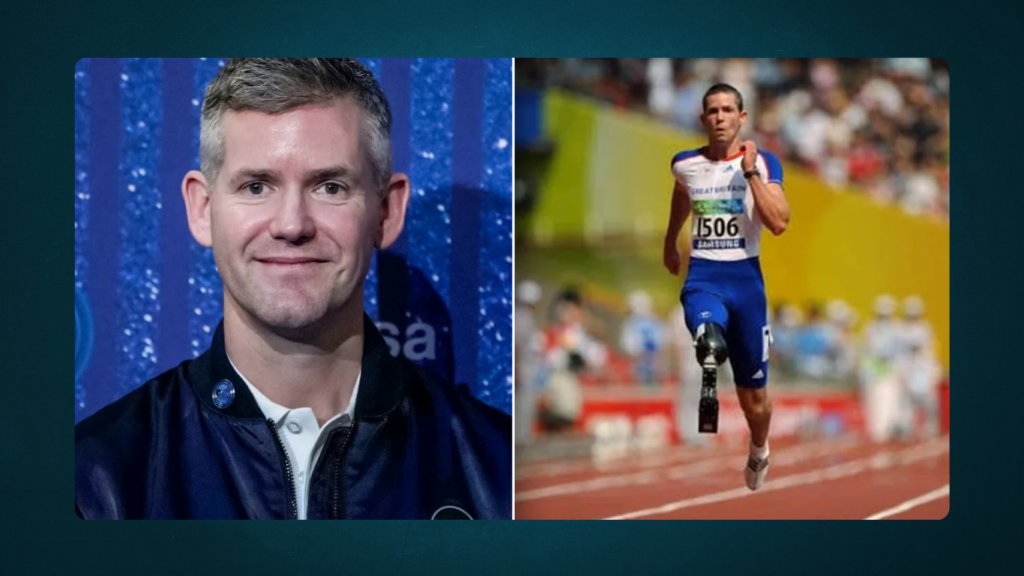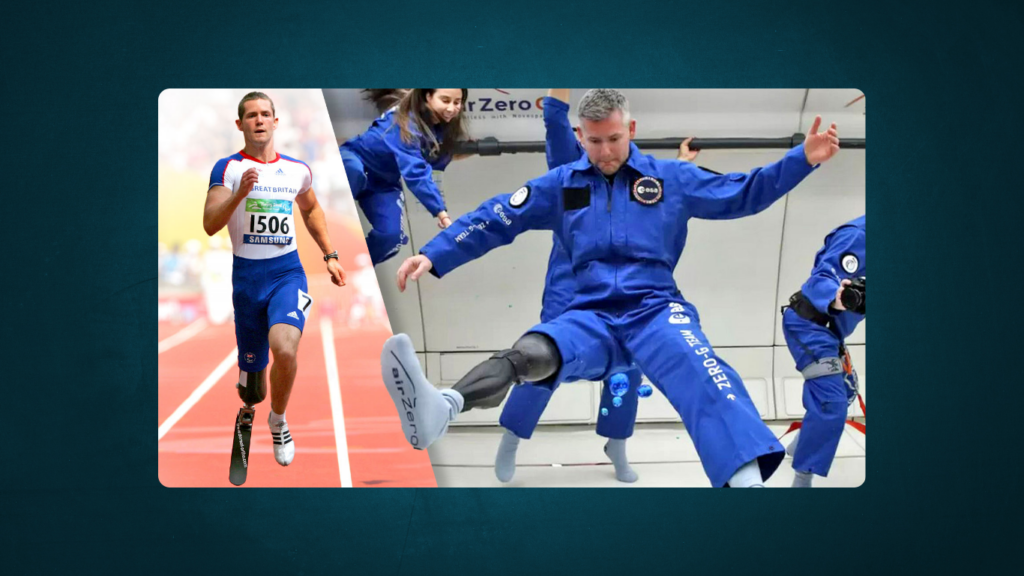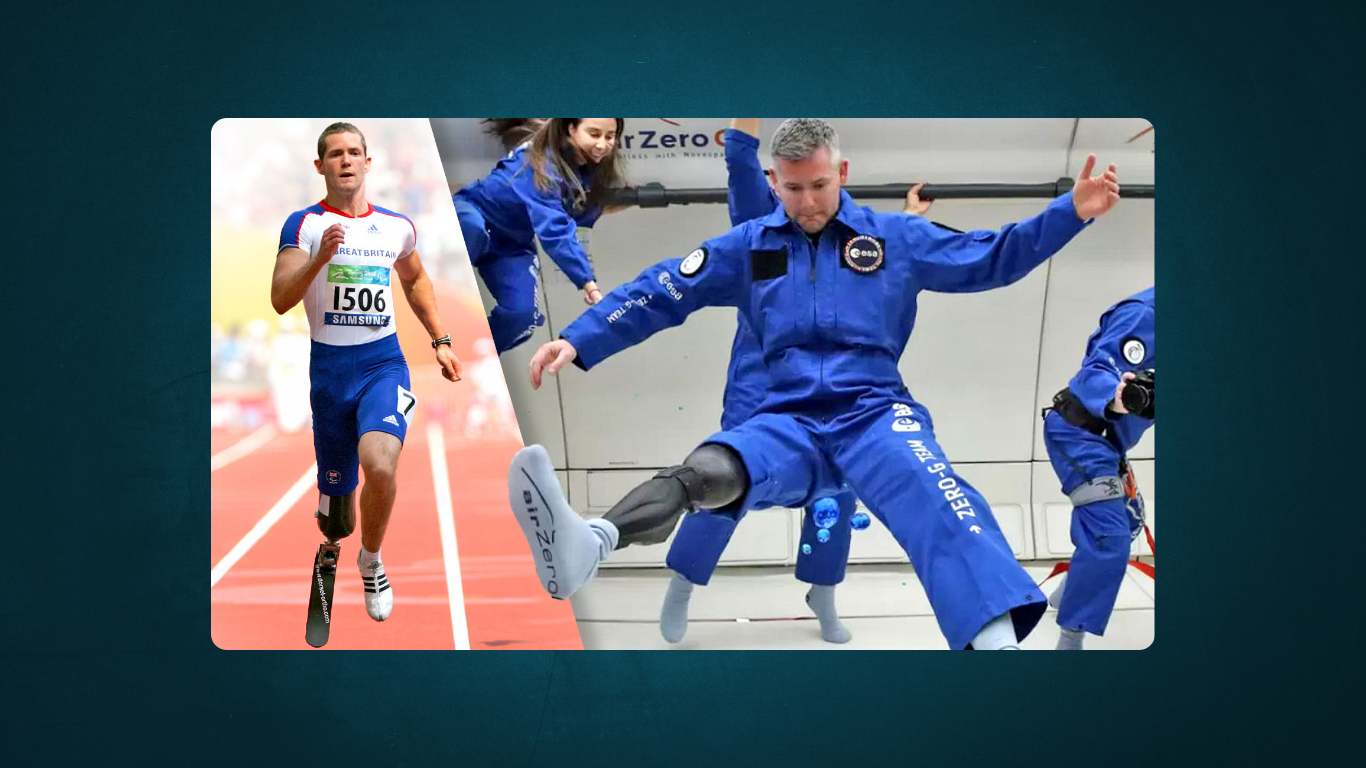When John McFall got a job ad for aspiring astronauts from a colleague, he didn’t think twice. “Honestly, the first thing that popped into my head was, ‘How amazing would it be to go to space?’” he said. But reaching that goal would mean breaking a barrier that has been around for over sixty years of space exploration—one that’s kept astronauts with disabilities from taking part.

McFall’s story starts with a major life change when, at 19, he lost his right leg in a motorcycle accident. Instead of letting that stop him, he turned it into motivation, eventually becoming a Paralympic sprinter and even winning a bronze medal at the Beijing Games. Later, he went on to become a trauma and orthopedic surgeon. So, when the opportunity to become an astronaut came up through the European Space Agency (ESA), he jumped at the chance.
The process was anything but easy—ESA’s selection involved six stages that included psychomotor tests lasting hours and tough panel interviews. In 2022, McFall got the big news: he was chosen to join ESA’s new program to explore if a person with a physical disability could live and work in space. It’s a major milestone that could open up space travel for many others in the future.
“It’s incredibly exciting,” said McFall, who’s now 43. “People keep saying, ‘Why hasn’t this been tried before?’”
Right now, there’s no guarantee that McFall will get to go on a space mission, but ESA is making sure he can meet the requirements of a six-month stay on the International Space Station (ISS). “We need to show that it can be done,” McFall said. “It’s not that people think it’s impossible—it’s just that nobody has done it yet.”
One of the big challenges is that space missions were always designed for able-bodied astronauts, so McFall’s training involves figuring out how he can stabilize and move in zero gravity, and how space conditions might affect his prosthetic leg. So far, all the tests have been positive, which is a hopeful sign that McFall—or someone like him—could eventually join a mission. “My hope is that, sometime between 2027 and the end of this decade, we’ll see a European astronaut with a physical disability as part of the ISS crew.”

But this project isn’t just about getting one person to space—it’s about making space exploration more inclusive for everyone. McFall is helping shift the way people think about disabilities. “We’re challenging the narrative around physical disability,” he said. “Breaking these barriers not only starts conversations but helps end stereotypes.”
One of those conversations is about the labels people use. Since joining ESA, McFall has been vocal about pushing back on the term “parastronaut,” which is often used to describe astronauts with disabilities. “I think it’s important to ask, what does it mean?” McFall said. “I’m not a para-surgeon; I’m a surgeon. I’m not a para-dad; I’m just a dad. Using ‘para’ before everything someone with a disability does can create a divide we don’t need.”
McFall’s effort to change perceptions comes at a time when many people with disabilities still face a lot of barriers, including discrimination. Data from across the European Union shows that those with disabilities are more likely to be unemployed and live below the poverty line. McFall hopes that his role in the astronaut program will start changing how society views disability and open up new opportunities.
“By doing this, I hope it helps create more chances for people with disabilities in many different careers,” he said. “My mission is to help people get a better understanding of what disability means today—it’s not that outdated idea from decades ago. We need to redefine it, and there’s no better place than space to spread that message.”
John McFall’s ambition isn’t just about fulfilling a personal dream; it’s a giant step toward a future where space is open to everyone. He’s pushing both physical and societal boundaries, showing the world that disability doesn’t define what’s possible. By doing so, he’s not only aiming for the stars but also helping us rethink what human potential really means.
With McFall blazing this trail, future generations will know that space exploration isn’t just for a select few—it’s for everyone, no matter the challenges they face.

Subtly charming pop culture geek. Amateur analyst. Freelance tv buff. Coffee lover
